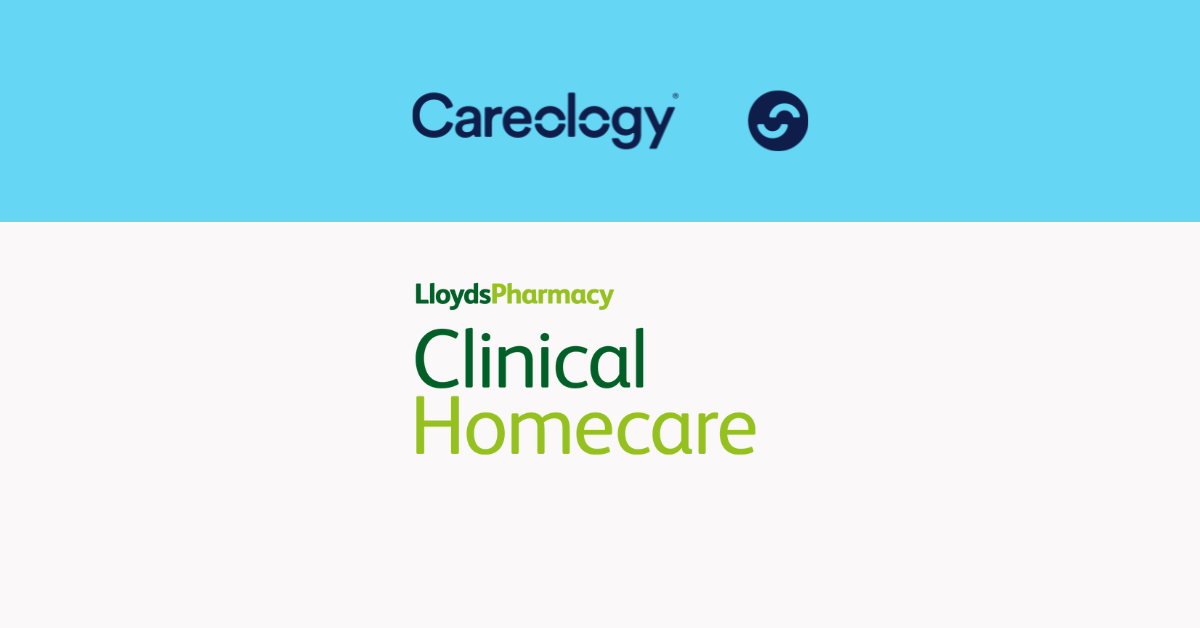Careology is a leading health tech platform, recommended by Macmillan Cancer Support, that helps people living and dealing with cancer to navigate their treatment. Careology and LloydsPharmacy Clinical Homecare (LPCH) empowers patients to receive treatment in the comfort of their own homes via Careology’s mobile app and a remote monitoring dashboard.
The delays and disruption caused by the coronavirus pandemic have had a significant impact on cancer care across the UK. There has been a huge rise in people missing urgent cancer checks over the past few years which has overwhelmed healthcare services. Patients are facing long waits for treatment and it's been reported that the NHS cannot deal with this backlog, setting survival rates for some cancers back a decade.
Despite feeling the immediate effects of cancer services being disrupted, experts see a bigger problem on the horizon. Macmillan warns that the UK faces a ‘ticking time bomb’, storing huge problems for the NHS which will take years to recover from.
The need to reduce hospital exposure and keep patients safe whilst establishing continuity of care resulted in a rise in the treatment being administered in a homecare setting. Within the last 18 months, LPCH has seen a 200% in demand for homecare services, with both NHS and private healthcare referrals.
In February 2021, LloydsPharmacy Clinical Homecare, the leading provider of home healthcare services (and part of McKesson UK) supporting over 100,000 patients across the UK, commenced a three-month Proof Of Concept (POC) with Careology. During this time it introduced Careology Professional to the entire LPCH nursing team and the Careology mobile app to a selection of patients. The two companies partnered with a vision of delivering accessible and personalised support to patients by using digital technology to connect people with cancer to their family, friends and to their nurses and clinicians.
Both organisations assigned a dedicated project manager to run the implementation and deployment. A steering committee with representation from both organisations was also created and met fortnightly throughout the POC. Through various collaborative workshops, a project was co-designed, which included defining where in the current service design and patient pathway Careology would be best introduced. Key milestones and KPIs were identified, including the number of patients invited and using the mobile app and the number of nurses using Careology Professional.
The Careology Professional dashboard allows clinical teams to remotely monitor their patient's health and well-being information, symptoms and side effects for the first time. The dashboard charts data from wearable devices which continually monitor temperature, heart rate, blood pressure, weight and activity levels. Clinicians and nurses can spot potential red flags, including anomalies in vital signs and medication adherence, allowing early intervention, which can improve health outcomes.
Proactive support and day-to-day management of the initiative were provided by the Lead Cancer Nurse, the regional nurse managers and the ‘Careology Champions’. They were assigned nationally to help with the smooth running of the POC. Regular online training and feedback sessions were held for the nurses. Guidance on which patients to invite and supporting documentation were also shared.
Supporting marketing materials, for example, leaflets, emails and guides, were created and distributed to patients and nurses at various points over the three months. These were primarily designed to help patients understand the key features and benefits of using Careology to monitor their health.
Benefits
Ahead of launching the initiative, LPCH surveyed a cohort of patients and nurses to understand their appetite for adopting digital health care.
67% of patients used the mobile app after an LPCH nurse introduced it to them, which was greater than the survey results indicated.
Satisfaction has also been high.
Patient comment:
“I really like the notes as a memory aid - for both me and my nurse" "I have used Careology to look at patterns in how I’m feeling, to see if it is on the same treatment days"
Patients feel more empowered, in control and proactive during their treatment, Alongside this, the service has supported cancer patients throughout the pandemic and has made sure their family and friends stay connected at such an unprecedented time.
Adoption has also been high within the nursing staff, with 97% of nurses using Careology Professional throughout the POC. The app helps support the clinical teams with in-depth assessment and continuous remote patient support, meaning they can prioritise and action quickly which in return can reduce unnecessary hospital admissions.
Patient comment:
“My nurse and I both think it’s brilliant that she can check up on me before she sets foot in the door"
Over time we expect this will enable the nurses to understand and prioritise which patients need attention and possible intervention. By incorporating virtual rounds and remote triage, nurses will be able to reduce in-person checkups and follow-up appointments, which will quickly unlock capacity allowing them to deliver care to more patients nationwide. This capacity will be vital as they deal with the influx of referrals as a result of the pandemic.
---
Award
This case study won The Health Tech Awards 2021 - Most Promising Pilot. For further information about this award, please click here.
About Careology
Careology is building the world’s leading digital cancer care platform. By equipping and seamlessly connecting patients, caregivers and healthcare teams in a complex pathway, our mission is to use technology to transform traditional cancer care and change everyone’s cancer story for the better. Today the platform allows patients to manage and navigate all aspects of treatment from their device, while leveraging critical data on symptoms, medications, side effects and more, to deliver insight and analysis to clinical teams through a ‘virtual ward’. By increasing the potential for patients to self-serve, improving workflows, making 24/7 monitoring possible and putting a unique data set to work, we are helping to relieve pressure on health systems, while reducing costs, improving patient and clinician experience, and optimising health outcomes.


